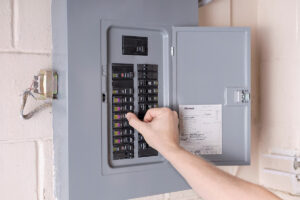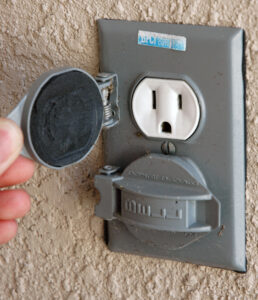(Updated Dec. 6, 2021)
Electricity keeps you comfortable, healthy, clean, and connected. It also costs you money. That’s especially true in winter when heating costs can skyrocket. The good news is it’s easy to save money on your heating costs and reduce the energy you use, even during those chillier months.
It’s also good for the environment. Energy-efficient appliances will help all year round with lower consumption rates, which means your eco-friendly decisions will also save you some cold hard cash. Here are 8 simple tips for saving money on your electric bill this winter.
#1. Turn It Down
Turn your thermostat down 10 to 15 degrees at night and when you’re not home during the day. This one step can result in 10 percent savings on your heating bills over the course of the year.
Invest in flannel sheets and a comforter for your bed. Your bedroom will be cooler, but you’ll stay warm and cozy even on the coldest nights.
#2. Bundle Up
Keep the temperature about three degrees lower than you regularly set it. Then put on a sweater or snuggle under a fleece throw while you watch television or read in the evening. By turning your thermostat back 7°-10°F, you could save as much as 10% a year on heating and cooling.
By installing a smart thermostat, you won’t even have to think about it. With these programmable thermostats, you can set a schedule for heating every day of the week. Coming home on a particularly cold evening? You can start to warm the house a few minutes early from your smartphone.
#3. Use the Sun
Despite all the overcast days so prevalent in the typical Northwest winter, the sun comes out occasionally. Solar heat is an excellent—and free—source of heat for your home. During the day, leave the curtains open on windows facing south. This lets in the warmth of the sun and naturally raises the temperature in your home.
When the sun goes down, pull your drapes and close your blinds so the warmth stays inside. It’s basically the same process during the summer, just in reverse. Depending on the age of your home, you may want to consider new energy-efficient windows. This is a pretty big upfront cost but will save you money during the following decades.
#4. Insulate
Cold air is sneaky. It will find cracks and other openings, creating uncomfortable drafts and cold spots in your home. These cracks also lead to heat loss, giving your expensive warm air a place to escape. Add weather stripping around windows and doors to prevent air leaks.
Use caulk to fill in cracks you see around your window panes and trim to stop drafts. You can increase the amount of insulation in your attic to help keep warm air in place. This is another area where new window installation can help create a newer, tighter seal for your home.
#5. Tune Up Your Furnace
No matter if you live in Washington, Oregon, Alaska, or Florida, it’s always a good idea to keep your major appliances maintained. By keeping all ductwork clean, filters replaced, and other general maintenance, your home’s heating system won’t have to work harder than it needs to.
An experienced technician can change the air filter and detect potential problems due to damage and wear and tear. Learn how to clean and change the air filter yourself and check it monthly. You save money, electric costs go down, and your furnace operates more efficiently.
#6. Close Doors
Don’t heat an unused guest room or storage in the basement. You’re just wasting money. Close doors to rooms that aren’t used so you aren’t needlessly heating them with heat from the rest of the home. Seal off the vents in those rooms so the warm air is sent to the rooms you’re actually using.
#7. Turn Off Electronics
It’s often overlooked, but you can save money by unplugging electronics when they aren’t in use. Features like instant-on televisions can really use up energy quickly. And that’s true even when they aren’t being used. It’s also a good idea to turn off your computer when not in use.
#8. Use Appliances Efficiently
When your appliances run efficiently, they use less energy and you save money on your electric bill. A few simple changes can make them more cost-effective:
- Refrigerator: Clean the condenser coils. Check the appliance manuals, YouTube, or do-it-yourself websites for how-to information.
- Dryer: Dry your loads one right after the other as this makes the most of the heat already in the dryer. Be sure to clean the lint filter before you run a load. When the filter is clogged with lint, the dryer needs more energy to get clothes dry. It can also cause safety problems.
- Dishwasher: Run your dishwasher only when you have a full load.
Many of the above steps will help lower your energy costs not only during the winter but also throughout the year. If you’re interested in learning more about saving energy costs, or worried about other electrical problems in your home, get in touch with Prairie Electric today.


